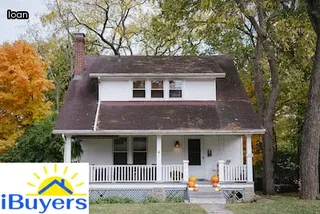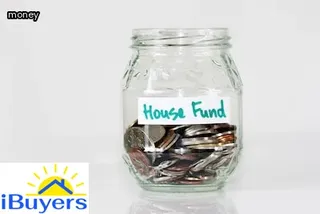Foreclosure is a serious matter that can have long-term implications on credit and financial stability. It is the legal process by which a lender takes possession of a mortgaged property when the borrower fails to make payments according to the terms of the loan agreement.
A foreclosure generally occurs when mortgage payments are more than 90 days late and the lender has taken legal action. The consequences of foreclosure can be far-reaching, including negative impacts on credit scores, restricted access to new loans, increased interest rates on future mortgages, taxes owed on forgiven debt, and potential legal action from creditors.
Furthermore, many people who have experienced foreclosure may find it difficult to rent or buy another home in the future. With all this in mind, it is important for homeowners to understand how to prevent foreclosure on their properties before it’s too late.

When it comes to avoiding foreclosure, timing is key. Acting quickly and reaching out to an experienced financial advisor or loan servicer can help you stay ahead of the game and keep your home safe.
If you are already experiencing late payments or delinquent accounts, speaking with a loan servicer about options like forbearance or loan modification may be the best decision for helping you avoid foreclosure. Additionally, if refinancing is an option, that could also be a great way to avoid foreclosure as it will help lower monthly payments and give more time to pay off the existing mortgage.
Finally, understanding the different types of foreclosures available in your area and researching other strategies such as cash-for-keys or deed in lieu of foreclosure may provide additional options to explore when trying to avoid foreclosure on your home.
One of the most important strategies to consider when attempting to prevent foreclosure on your home is staying in it. There are a few different options that you can use to stay in your home and avoid foreclosure, but they each come with their own risks and benefits.
For example, if you have a loan modification, you may be able to reduce your monthly payment and keep your home. However, this option does not always guarantee that you will not face foreclosure down the line.
Another option would be to refinance your existing loan at a lower interest rate; this could help reduce costs over time but may require additional fees upfront. Finally, if all else fails, bankruptcy can give you some breathing room and provide protection from creditors while allowing you to remain in your home.
Whichever option you choose, it's important to consult an expert first so that you can determine what strategy is best for your specific situation.

It can be a difficult decision to leave your home and accept foreclosure, but there are strategies you can employ to help avoid this outcome. One of the most important steps is to contact your lender as soon as possible if you start to experience difficulty in meeting payments.
Lenders often have options available for homeowners in financial difficulty, such as loan modifications or refinancing programs. You may also consider speaking with a housing counselor who can provide guidance and assistance with navigating mortgage programs.
Additionally, you may look into different types of Government assistance such as Home Affordable Modification Program (HAMP) or Hardest Hit Fund (HHF). Lastly, it is important to remember that foreclosure avoidance options are usually time-sensitive, so it is essential that action is taken quickly upon experiencing financial hardship.
By researching and exploring all the potential strategies available, homeowners may be able to prevent losing their home due to foreclosure.
Filing for bankruptcy can be a difficult decision, but when it comes to preventing foreclosure on your home, it may be the best option. Bankruptcy can provide an immediate halt to all collection actions and give you time to work out a repayment plan with your lender.
It also provides an automatic stay on any foreclosure proceedings that have already been initiated. A Chapter 13 bankruptcy filing allows you to reorganize your debts and create a plan to pay back creditors over time while keeping your home, while Chapter 7 liquidates assets in exchange for the discharge of unsecured debt.
When considering bankruptcy as an option, make sure to consult a qualified attorney who is knowledgeable in this area of law and can assess your individual situation. Additionally, be aware that there are certain restrictions on obtaining new credit after filing for bankruptcy, so it’s important to weigh all the pros and cons before making a decision.

Filing a lawsuit may seem like an extreme measure to take in order to prevent foreclosure on your home, but it can be an effective strategy. Your first step should be to contact a lawyer who specializes in foreclosure cases and can inform you of the options available.
They can also help you understand the legal process and any potential risks involved. If a lawsuit is necessary, it will involve filing papers with the court outlining why the foreclosure is invalid and citing other reasons why it should not proceed.
As part of this process, you will need to provide evidence in order to support your case; this could include bank statements, loan documents or proof of payment. Although the outcome of a lawsuit is never certain, it can be an effective tool for preventing foreclosure if used correctly.
Loan modifications can be an effective strategy for homeowners facing foreclosure, as they can help reduce monthly payments and make them more manageable. Loan modifications involve restructuring the terms of a loan agreement, typically by changing the interest rate, extending the repayment period, or decreasing the principal.
These modifications help to lower monthly payments and can offer some relief to borrowers who are struggling to make their mortgage payments. In addition to reducing monthly payments, loan modifications also offer other benefits such as deferment of certain fees and charges associated with foreclosure.
There are several government programs that provide assistance in obtaining a loan modification; however, it is important to understand that these programs may not be available in all areas or for all circumstances. It is also essential that borrowers understand any potential risks associated with loan modifications before choosing this option.

When it comes to foreclosure, the best way for homeowners to protect their rights is by consulting with an experienced attorney. Talking to a lawyer can help you understand your legal options, such as filing for bankruptcy or applying for a loan modification.
An attorney can advise you on the type of paperwork that needs to be filed and how long it will take to process your case. Additionally, they can review any documents provided by the lender that may not comply with state and federal foreclosure laws.
In some cases, an attorney may also be able to negotiate a repayment plan with your lender or help you reach an agreement on a short sale of your home. Understanding the legalities related to foreclosure is crucial in stopping this process before it begins, so having an expert in your corner is essential in protecting your property.
It is important to consult a foreclosure attorney as soon as possible if you are facing the possibility of foreclosure. A foreclosure attorney can explain the legal process and help you understand your rights and responsibilities.
They can provide advice on how to negotiate with your lender, including any potential options for stopping the foreclosure process. Additionally, a foreclosure attorney may be able to help you create a payment plan that works for both you and your lender, or work with them to have your loan modified.
An attorney may also be able to represent you in court if needed. In some cases, they can even investigate any illegal activity by lenders that could be interfering with your ability to pay off your loan.
Consulting with a qualified foreclosure attorney can be an essential step in preventing foreclosure on your home and saving it from being repossessed.

Foreclosure prevention is a complex issue, but there are some strategies that homeowners can use to avoid the worst-case scenario. The first step is to understand the process of foreclosure and how it works.
This includes learning about the stages of foreclosure, recognizing signs of distress, and understanding what rights you have as a homeowner. Next, make sure you are up to date on your mortgage payments and keep detailed records of any communication with your lender.
If you know you’re going to have trouble making payments due to an illness or job loss, reach out to your lender immediately. Many lenders have hardship programs that allow homeowners to temporarily lower their monthly payment or defer payments until they can get back on their feet.
Finally, consider speaking with a housing counselor who can help review your options and provide valuable guidance throughout the process. With these best practices in mind, homeowners can take proactive steps to protect themselves from foreclosure.
Reaching out to your lender is one of the most important steps you can take when trying to prevent or delay foreclosure on your home. By speaking directly with the lender, you can gain insight into available options and strategies that may be able to help you stay in your home.
It's not always easy to get in touch with a representative, but there are ways to increase your chances of success. Before contacting the lender, research their policies and procedures related to foreclosure prevention so you can come prepared with questions and solutions.
If possible, have a professional financial advisor or attorney present during these discussions – having an expert on your side can help ensure that all potential options are explored. Additionally, make sure all information shared is documented in writing as proof of any promises made by the lender.
Finally, remain polite and respectful throughout negotiations as this will help foster a more productive conversation between both parties.

When it comes to preventing foreclosure on your home, it is important to explore all possible solutions before choosing a path of action. It can be overwhelming to consider all the options available, but it is important to take the time to research and review each potential avenue for financial assistance.
From refinancing or modifying your existing mortgage loan, to seeking assistance from local or national housing programs, there are various solutions that can help you keep your home and avoid foreclosure. Consider carefully the pros and cons associated with each option and determine which one will work best for you.
Additionally, be sure to look into any tax incentives that may be available in your area as they could further reduce your financial burden. Ultimately, it is up to you and your particular situation to decide when and how you should move forward with protecting yourself against foreclosure.
Taking the time now to evaluate your choices could save you a great deal of stress down the line.
When facing the threat of foreclosure, it is important to seek professional help. Financial advisors, mortgage lenders, and other professionals can provide vital guidance and resources to help struggling homeowners stay afloat.
Working with these experts can allow families to create a budget that allows them to make their mortgage payments on time while still providing for their needs. Additionally, they can help homeowners develop long-term strategies for financial stability by helping them build good credit, invest in assets like stocks or real estate, and find ways to reduce expenses.
These professionals can also inform borrowers of possible loan modification programs that may be available through their lender or government resources. With the right combination of expert advice and hard work, homeowners can better their chances of avoiding foreclosure and establishing a secure financial future.

Researching local programs that help homeowners avoid or delay foreclosures is an important part of preventing foreclosure on your home. It's essential to know what resources are available in your area, and how to access them.
To begin, contact your municipality or county government to learn about any programs that may be offered. These could include emergency loan assistance, mortgage payment plans, or other forms of financial support for struggling homeowners.
Additionally, search for local non-profit organizations and charities that offer foreclosure prevention services and counseling. They can provide guidance on budgeting and money management strategies to help you manage finances more effectively.
Finally, don't forget to check with your lender - they may have specific programs tailored to the needs of their customers facing foreclosure. By researching these resources, you can be better informed about the options available to avoid foreclosure on your home.
Finding resources to help overcome financial hardship and survive a foreclosure crisis can be a difficult task. Knowing where to look for assistance and understanding how best to utilize those resources is key.
Government assistance programs such as unemployment benefits, housing assistance, and food stamps can provide temporary relief while you seek out other options. One of the most important steps in preventing foreclosure is to create a budget that keeps your monthly expenses below your income.
You should also research loan modification options through your lender, which may allow you to lower interest rates or extend the repayment period on your loan. Non-profit organizations can be invaluable sources of support in times of financial hardship.
They offer counseling services, debt management plans, and legal advice that can help keep you on track financially and prevent foreclosure on your home. Finally, don’t forget about family and friends when looking for ways to weather a foreclosure crisis; they may be able to provide emotional support or even short-term loans if needed.
With the right resources at hand, it is possible to prevent foreclosure on your home during a financial crisis.

When assessing what assets you have to reduce the risk of foreclosure, it's important to consider both your liquid and illiquid assets. Liquid assets are cash or items that can quickly be converted into cash, such as stocks, bonds, mutual funds and real estate investments.
Illiquid assets are those which cannot be quickly converted into cash, like a home or car. It's important to determine how much equity you have in these items and if they can be used to pay off any existing debts you may have.
Additionally, look at any available credit lines you may have access to as well as any retirement savings accounts you may be able to use. If there is an opportunity for refinancing your mortgage or taking out a loan against the value of your home, this should also be considered.
Taking the time to thoroughly assess all of your assets can help put you in a better position when attempting to prevent foreclosure on your home.
It is important to understand the legal aspects of dealing with a potential foreclosure situation as it can be difficult to navigate and many people do not know where to begin. Foreclosure laws vary from state to state, so researching the specific guidelines in your area is essential in order to make informed decisions.
The lender is legally obligated to follow certain procedures, including sending notification of delinquent payments, providing a list of available options, and offering an opportunity for the borrower to cure the delinquency. It is important to understand that foreclosure is a time-sensitive process and failing to take action immediately could have serious consequences.
If you are unable to catch up on mortgage payments or make alternate arrangements, consulting an experienced attorney may be necessary in order to negotiate a favorable resolution with the lender. In some cases, filing for bankruptcy may be a viable option as it can provide immediate protection from creditors while allowing time for restructuring finances or negotiating loan modifications.

Refinancing and short selling are two of the most popular strategies for preventing foreclosure on a home. Refinancing involves taking out a new loan with more favorable terms in order to replace the existing loan, while short selling is when the owner agrees to sell their home for less than what is owed on the mortgage.
Both of these options have their own advantages and disadvantages that should be weighed carefully before making a decision. In refinancing, homeowners can often lower their monthly payment and save money in interest payments over time, but will need to come up with higher upfront costs for closing fees and other associated costs.
Short selling offers a much faster solution as it can take months or even years for refinancing to be completed, however this option requires that the homeowner accept the lower sale price, potentially leaving them with debt after the sale has been finalized. Ultimately, both strategies offer viable solutions for those facing foreclosure but must be evaluated on a case-by-case basis in order to determine which is best suited for an individual's needs.
It is important to understand your legal rights when faced with a notice of default. Knowing the process and the steps you can take to prevent foreclosure can help save your home.
Start by getting in touch with your lender right away. They may be able to offer loan modifications, such as restructuring the loan or extending repayment terms, which could reduce or even eliminate missed payments.
Additionally, if you are behind on payments due to an unexpected hardship, like a job loss or medical emergency, it may be possible to negotiate a repayment plan that works for both parties. You can also investigate other options such as refinancing at a lower rate, forbearance or deed-in-lieu of foreclosure.
If you have already received a Notice of Default from your lender, seek professional advice from an attorney or housing counselor who can explain your rights under state law and work with the lender on your behalf. Additionally, look into any local programs that offer assistance for homeowners dealing with foreclosure and explore any potential tax consequences of a foreclosure before making any decisions.
The best way to prevent foreclosure is to take action as soon as possible. Many homeowners are unaware of the warning signs and don't act in time, resulting in a more costly and lengthy process.
The sooner you can identify and address the problem, the better your chances of preventing foreclosure. Seeking out expert advice from an experienced real estate attorney or mortgage specialist is one of the most effective strategies for keeping your home secure.
They can help you evaluate your financial situation and develop a plan that will help you avoid foreclosure. Additionally, budgeting, renegotiating loan terms with lenders, seeking government assistance programs and refinancing can all be helpful in preventing foreclosure on your home.
Taking these steps early on can make all the difference when it comes to keeping your home safe from foreclosure.

The foreclosure process can be temporarily stalled if homeowners take proactive steps to prevent it from happening in the first place. Some strategies include reaching out to lenders and taking advantage of government programs that offer assistance, such as forbearance and loan modification programs.
Homeowners may also be able to negotiate a repayment plan with their lender or ask for a special forbearance. Additionally, homeowners should look into refinancing options, which could help them bring their mortgage payments up-to-date and possibly lower their monthly payments.
Finally, homeowners should explore legal options such as filing for bankruptcy if they are facing insurmountable debt and cannot come up with a solution on their own. Taking these steps can buy time while exploring other alternatives that may help homeowners avoid foreclosure in the long run.
If you are facing foreclosure on your home, it can be a stressful experience. Fortunately, there are a number of strategies that homeowners can use to prevent or delay foreclosure.
Consulting with an experienced real estate attorney is the first step in addressing a potential foreclosure. The attorney can help identify any legal remedies available to the homeowner and guide them through the foreclosure process.
Additionally, homeowners should consider contacting their lender as soon as they realize they may not be able to make their mortgage payments. Lenders are often willing to work with homeowners if they are willing to negotiate and open a dialogue about their options.
Refinancing is another option for homeowners who need additional time or money to pay off their mortgage debt. Homeowners should also explore government programs designed to help those struggling with payments, such as the Making Home Affordable Program which offers loan modifications, refinancing options and other assistance for eligible borrowers.
Finally, it is important for homeowners facing foreclosure to remember that there are many resources available and that support from family and friends can make all the difference during this difficult time.
It can be a terrifying thought to consider that your home may be in foreclosure, but it’s never too late to take action. There are numerous strategies available to help prevent foreclosure on your home, and expert advice to guide you along the way.
The most important thing is to take action quickly before the foreclosure process starts. Start by contacting your lender right away and explain your situation.
Ask what options they have available for loan modifications or refinancing plans that could help you stay in your home. Research local homeownership assistance programs in your community and look into other resources like housing counseling agencies, who can provide guidance on loan modification options or other solutions to keep you from losing your home.
Once you know what steps you need to take, create a budget and prioritize debt repayment so that you can pay off arrears as soon as possible. Lastly, stay in contact with your lender throughout the process – communication is key! With the right knowledge and an effective plan of action, it’s possible to successfully prevent foreclosure on your home.